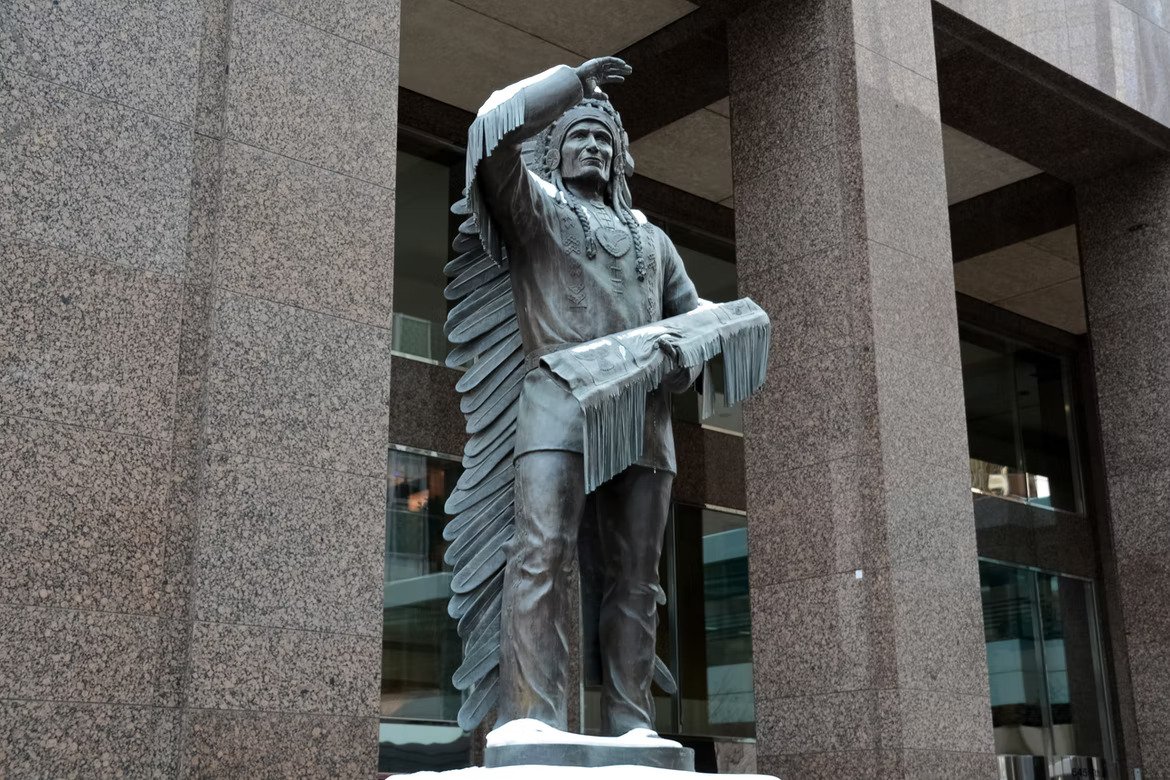Legal weed paying off for B.C. First Nation

While some Indigenous communities in B.C. have embraced the grey market for cannabis, the Williams Lake First Nation has taken a different approach that embraces the law.
That decision has paid off handsomely for the WLFN, with officials on Friday performing a cultural blessing at its Unity Cannabis shop in Penticton, which is the third such store it has opened in B.C.
Chief Willie Sellars, who attended the ceremony, said in an interview afterwards the decision to keep everything above board was grounded in economic and safety reasons.
“We wanted to have the ability to open a bank account legally. We wanted to make sure that the product on the shelves that the membership and community is going to be accessing is Health Canada-certified and safe, and we wanted to have the ability to ensure we take care of the people who are working in these stores,” said Sellars.
“We truly feel this is the future of the cannabis industry is the legal route. That being said, we also understand that the legal route is going to continue to evolve to make it more user-friendly and appealing to First Nations communities to go down this route.”
In the Okanagan, some First Nations communities have allowed cannabis shops to proliferate on their lands without licences from the B.C. government or channels to secure a legal supply of weed.
There were more than 30 such outlets in the Southern Interior as of last fall, including six on Penticton Indian Band land alone.
As a result, grey-market bud is often much cheaper than what’s found on the shelves at licensed shops like Unity Cannabis, which also has outlets in Williams Lake and Merritt.
By contrast, the WLFN in 2020 signed a unique government-to-government agreement with the province that allows it to operate eight retail stores — provided the shops are licensed and supplied with Health Canada-certified product — along with a production facility that will eventually offer farm-gate sales.
That 7,000-square-foot facility recently went into operation with a micro-cultivation licence under which it can produce 650 kilograms of bud annually, according to Sellars, who led extensive community consultation to secure a mandate to dive head-first into cannabis as a means to improve WLFN members’ lives and fund the restoration of language, culture and traditions.
“It’s going to take an investment, not only in cash but in time, and that’s exactly what we’re striving for,” said Sellars.
420 Intel is Your Source for Marijuana News
420 Intel Canada is your leading news source for the Canadian cannabis industry. Get the latest updates on Canadian cannabis stocks and developments on how Canada continues to be a major player in the worldwide recreational and medical cannabis industry.
420 Intel Canada is the Canadian Industry news outlet that will keep you updated on how these Canadian developments in recreational and medical marijuana will impact the country and the world. Our commitment is to bring you the most important cannabis news stories from across Canada every day of the week.
Marijuana industry news is a constant endeavor with new developments each day. For marijuana news across the True North, 420 Intel Canada promises to bring you quality, Canadian, cannabis industry news.
You can get 420 Intel news delivered directly to your inbox by signing up for our daily marijuana news, ensuring you’re always kept up to date on the ever-changing cannabis industry. To stay even better informed about marijuana legalization news follow us on Twitter, Facebook and LinkedIn.




